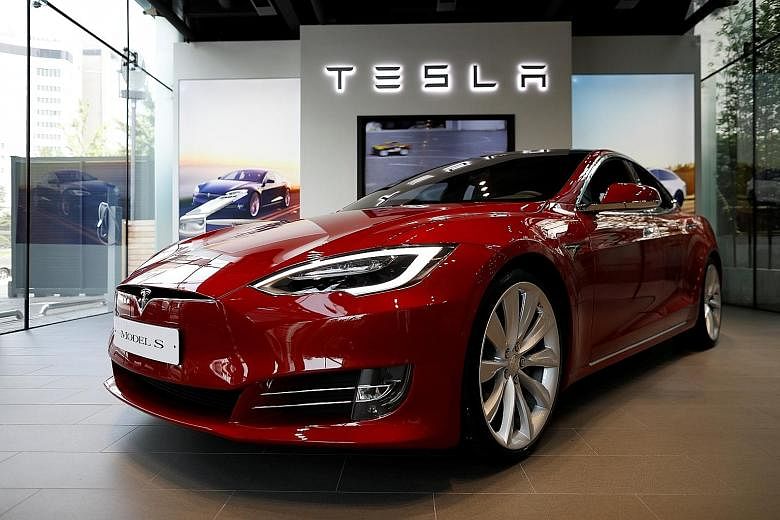This summer has had a lot of news about electric vehicles.
Tesla announced last week that it plans to deliver its first mass-market car to customers this month.
Volvo said in the same week it will sell only electric and hybrid cars from 2019 and, last month, Nissan's global director of electric vehicles, Mr Kazuo Yajima, said that the next Leaf will have a range of more than 322km.
As efforts ramp up to get more electric vehicles in front of consumers, here are some things to keep in mind when considering such a purchase:
BATTERY LIFE
Batteries in electric vehicles differ from those in petrol-powered cars. Electric cars require a more expensive kind of battery, which is what contributes to the high price of most models, said Mr Frederic Lambert, editor-in-chief of the website Electrek.
The batteries are lithium-ion based and designed to give power over sustained periods, while batteries in petrol-powered vehicles are lead-acid-based and are mainly used to start the conventional gas engine.
Most electric cars come with an extended warranty that covers the car battery up to its first 160,934km, said Mr Brian Mooney, an auto analyst and executive editor at Autotrader, which is similar to petrol cars depending on the model.
Since most electric cars have yet to have their warranties expire, car companies have handled the majority of battery replacements, Mr Lambert said.
RANGE
Depending on the mileage, how fast a car is going and other factors, a non-electric car can get well over 563km on a full tank of gas, according to consumer finance website Bankrate.
The range for electric vehicles varies from model to model, with the Chevy Bolt advertised to go 383km on a full charge, which is considered high for electric cars.
The Nissan Leaf has a range of 172km, while the Tesla Model S has a range of between 338km and 507km.
The longer a car can go on one charge, the higher its price will be, Mr Mooney said.
But not everyone needs an electric car that has a range like the Bolt, if they are going to use it only for a 16km commute to work every day.
Consumers should consider how they will use the car and the average number of kilometres they will be putting on it before purchasing an electric car, Mr Mooney said.
If they are not travelling far, they can look at cheaper models rather than overpay for a more expensive one.
CHARGE TIME
How fast an electric car can charge its battery really depends on the strength of the outlet it is plugged into and the kind of charger used.
One can recharge half the battery in half an hour when it is plugged into a supercharger, which is unique to Tesla cars only.
Cars plugged into a basic wall outlet can take up to 12 hours to charge, depending on the wattage, but customers have the option to buy a wall connector that cuts the time by five to six hours, Mr Lambert said.
If you want to know how much electricity is needed for your car, there are websites such as fueleconomy.gov and Plug In America, which can be good starting points.
THE WASHINGTON POST

